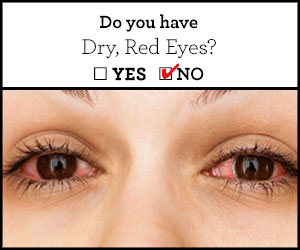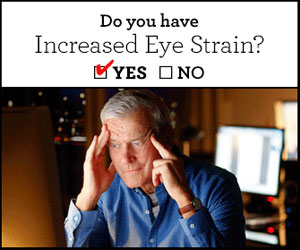At birth, our natural lens is clear, but as we age it yellows and hardens and eventually becomes cloudy. The cloudy lens is referred to as a cataract. If you are experiencing changes in your vision — including trouble driving at night, increased eye strain, and increased difficulty with sunlight and glare — you might have cataracts. Visit Dr. Kent to learn how you can see like you did 30 years ago.

Yes. Cataracts Cause Difficulty with Night Driving
One of the first symptoms of cataracts is often worsening night vision. Because cataracts distort the light that comes into your eyes, you may see halos around lights. This can make driving, especially at night, much more difficult, as you struggle to focus on what’s ahead of you and read street signs.

Yes. Cataracts Cause Difficulty with Bright Lights and Glare.
Because the lens of the eye becomes opaque, or cloudy, when you have a cataract, incoming light is scattered rather than following a focused path onto the retina in the back of the eye. This makes coping with bright lights difficult. Patients with cataracts usually have a lot of issues with glare.

Yes. Cataracts Can Cause Eyeglass Prescription Changes.
Cataracts develop and progress without any pain. However, one symptom commonly experienced by those developing cataracts is frequent changes in eyeglass or contact lens prescriptions.

No. Cataracts Do Not Cause Dry, Red Eyes.
The presence of a cataract will always, eventually, affect your vision in some way. But because the cloudy lens is located inside the eye, a cataract will not cause you to develop dry or red eyes. If you are experiencing eye irritation, you might be suffering from allergies, an eye infection, or possibly dry eye syndrome.

Yes. Cataracts Can Cause Eye Strain.
As the natural lens becomes cloudier, vision becomes more blurred. This increasingly clouded vision often leads to eye strain as you are forced to work harder to see clearly — squinting and holding materials close to your face in order to read them.
When the clouding of your lens begins to affect the enjoyment of your daily activities, it’s time to remove the foggy lens, and replace it with a clear lens implant. Our cataract surgeon, Dr. Gregory Kent, is a lens implant specialist. We will take time to understand your unique lifestyle, to be sure to match you with the optimum replacement lens to suit your vision needs. Schedule your personal cataract evaluation today. Just call us, or complete the form below.
